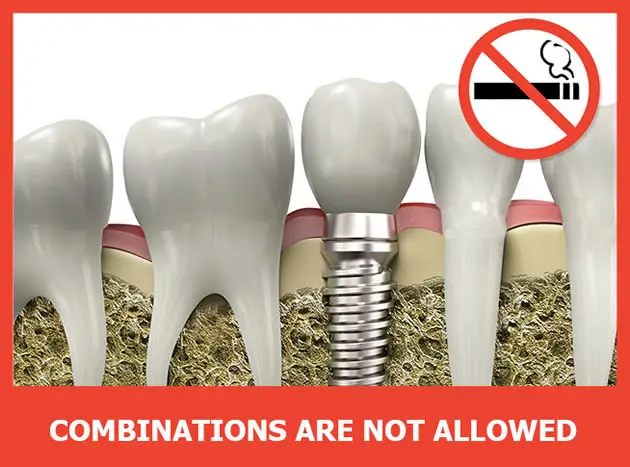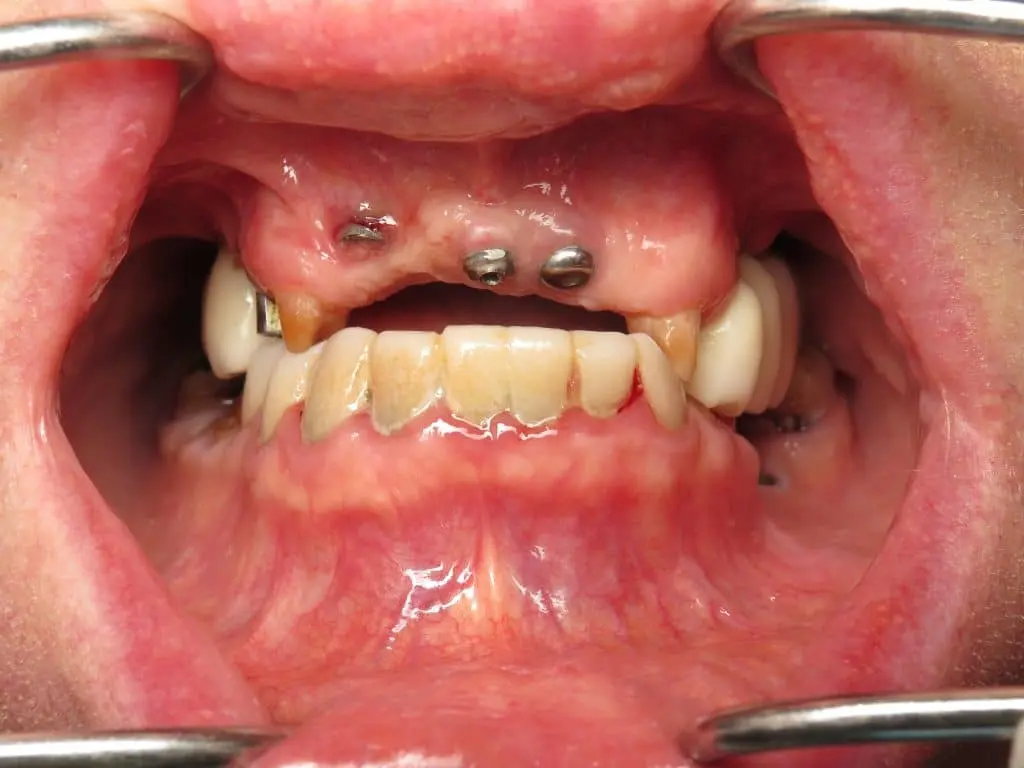Smoking is a habit that can have seriously detrimental effects on your oral health. Not only does it stain your teeth and cause bad breath, but it can also lead to more serious issues such as gum disease, tooth loss, and even oral cancer. If you've recently undergone dental implant surgery, it's especially important to avoid smoking as it can significantly impact the success of your implant. In this article, we'll explore the risks associated with smoking after dental implant surgery and why it's crucial to kick the habit for the sake of your oral health.

Does Smoking Stain Teeth Implants?
Yes, smoking can stain teeth implants, just like it can stain natural teeth. The toxins and chemicals found in cigarettes can cause discoloration and yellowing of the teeth, including dental implants. This can be particularly concerning for individuals who have invested in dental implants to improve the appearance of their smile. However, it's important to note that smoking doesn't just affect the aesthetics of your dental implants; it can also have more serious consequences for their long-term success.
How Long Does it Take for Smoking to Affect Your Teeth?
The effects of smoking on your teeth can vary depending on various factors, such as your current oral health, diet, and smoking habits. However, it's important to be aware that the negative impact of smoking on your oral health can occur relatively quickly. In as little as one week of smoking, you may start to notice compromised oral health. This includes issues such as plaque and tartar buildup, gum disease, and even tooth loss.
Smoking can affect saliva production in the mouth, which is essential for maintaining good oral health. Saliva helps wash away bacteria and neutralize acids that can lead to decay. Without enough saliva, bacteria can easily attach to teeth and gums, making it easier for dental problems to occur. Additionally, smoking increases the risk of gum disease, which can lead to tooth loss and has been linked to other health issues such as heart disease, respiratory infections, and dementia.
Reducing the Risks: Quitting Smoking for Better Oral Health
If you're a smoker and have recently undergone dental implant surgery, it's crucial to quit smoking to ensure the success and longevity of your implants. Smoking not only increases the risk of implant failure but also hampers the healing process. Smoking restricts blood flow and oxygen delivery to the surgical site, which can delay healing and increase the likelihood of complications.
Quitting smoking is undoubtedly challenging, but the benefits for your oral health are significant. Not only will quitting smoking reduce the risk of implant failure and other oral health issues, but it will also improve your overall health and quality of life. Your dentist and doctor can provide support and resources to help you quit smoking, such as nicotine replacement therapy or counseling programs.

- Is it safe to smoke after dental implant surgery?
No, it is not safe to smoke after dental implant surgery. Smoking increases the risk of implant failure and can hinder the healing process. - How long should I wait to smoke after dental implant surgery?
It is recommended to wait at least two weeks before smoking after dental implant surgery. However, quitting smoking altogether is the best option for optimal oral health. - Can I use e-cigarettes or vaping products instead of smoking?
While e-cigarettes or vaping products may not contain tobacco, they still pose risks to oral health. It's best to avoid all forms of smoking and nicotine use after dental implant surgery.
In Conclusion
Smoking after dental implant surgery can have severe consequences for your oral health. Not only can it stain your teeth implants, but it can also increase the risk of implant failure, gum disease, tooth loss, and oral cancer. Quitting smoking is essential for the success and longevity of your dental implants, as well as for improving your overall health. If you're a smoker, speak to your dentist and doctor about resources and support to help you quit smoking and maintain a healthy smile.
If you want to know other articles similar to Smoking after dental implant surgery: risks & importance of quitting you can visit the Oral health category.


Related Articles